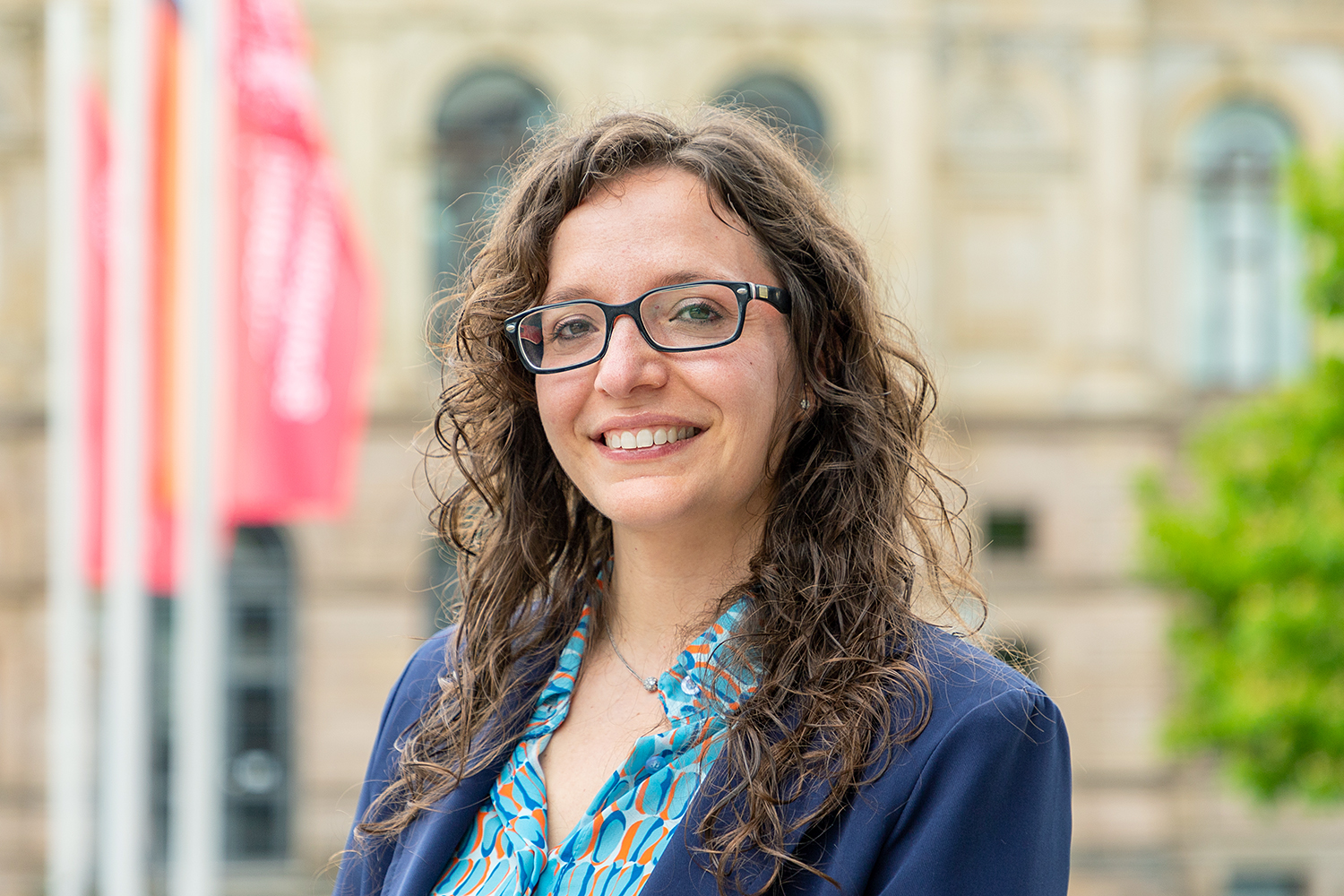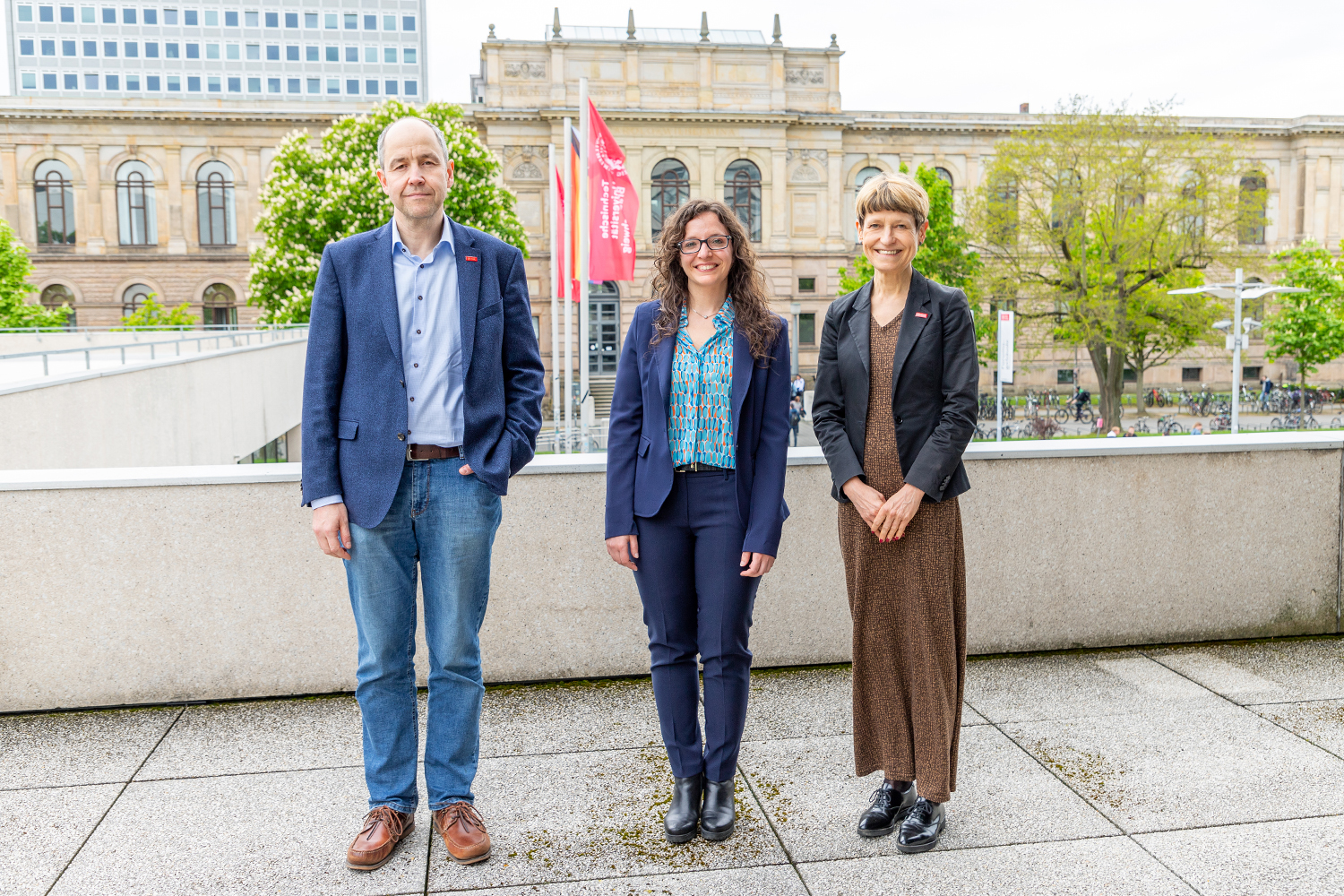“My research aims to make space more accessible” Simona Silvestri is a new professor at the Institute of Space Systems
Cryogenic propellants could be used for in-space applications. Therefore, a new space infrastructure for the production and storage of propellants should be built to enable longer space missions. Prof. Simona Silvestri has been researching and lecturing at the Institute of Space Systems at Technische Universität Braunschweig since May 2023 to turn this ambitious vision into reality. In the interview, she introduces herself and explains how the way we think about space transportation systems needs to change to enable new missions in space.
Why did you choose the TU Braunschweig?

Simona Silvestri is a new professor at the Institute of Space Systems. Photo credit: Kristina Rottig/TU Braunschweig
Within the framework of a research transfer programme, I had the opportunity to work with TU Braunschweig and to experience the professionalism of the research engineering team. TU Braunschweig has a reputation of being a reliable cooperation partner in a national and international context, so when I heard about the possibility of a vacancy, I wanted to know more about what the university and the city had to offer. It was refreshing for me to discover the research center at the airport that the university has and the development they are planning. The atmosphere I found during the assessment process was also a very warm one. The colleagues were not only competent, but also very supportive and enthusiastic about the new research topic. It made me want to be part of this community.
What exactly do you research? How would you explain your work to a person not familiar with the subject?
I am a rocket scientist. What I do is research new technologies that can be applied to the development of rocket engines and make the space logistics infrastructure more affordable. Space is indeed something that everyone looks at with dreamy eyes, but it often seems far away. Something almost impossible to reach and explore. Well, my research aims to make space more accessible.
We could compare space transport to the more familiar transport infrastructure on Earth. There are different types of transport available and the best choice depends on what we want to achieve: what is the destination, how many people or goods we want to carry, the type of fuel available, the desired duration of the trip. These are features that need to be considered to make the right choice. Depending on the choice we would have different options and costs. For example, we could travel from Germany to Italy by car, by train or by plane, which would result in different costs. The same principle can be applied to space travel, but in this case, we don’t have many options and the cost is so high that only privileged people or big companies can afford to buy a ticket.
My research is looking at ways to reduce these costs based on engine development. How to make the engine easier to manufacture, what techniques can be used to improve the performance of the engine and new fuel combinations that are easier to handle.
The overall system infrastructure is also being considered to make space operations more affordable. In the same way that we can refuel our own car when we go on a long trip, we want to be able to refuel our rocket without having to bring the fuel from home. So, we are also looking at ways of storing fuel in space and producing it directly on site.
What are the main research areas and projects you will be working on at TU Braunschweig?
One of my areas of work is the research into methods and designs for using cryogenic propellants for long-duration missions. These are largely used for high performance launcher applications. However, their availability in space makes these propellants suitable for in situ-resources utilization and in-orbit refueling. The requirements to be met for space applications are different from their usual use and require a significant understanding of the overall system.
There are three main areas of research: high thrust – high specific impulse in-space propulsion, efficient thrust control, and in-space propellant handling. To this end, the construction of a compact, mobile combustion test facility is planned. In addition, the overall space logistics will be considered in order to make long-term cryogenic propulsion effective at working level. Indeed, refueling station concepts need to be developed and a thermal vacuum system will be built to investigate propellant handling and zero boil-off concepts.
Another area of research is the development of reusable space transportation systems. To minimize the production costs, additive manufacturing methods for the production of space components will be investigated. To explore the constraints associated with the harsh thermal environments and pressure loads that the system will have to withstand, a test facility for long-duration testing and high thermal and pressure loads will be constructed.
Work will also be carried out on space debris removal technologies and modelling. Knowledge of space debris is an important area of competence at the Institute of Space Systems at TU Braunschweig. The monitoring, fragmentation and propagation modelling being developed at the Institute will form the basis for deriving mission requirements for the propulsion system. Artificial intelligence methods will be used to develop docking capabilities for non-cooperative targets and to cope with unknown variables.

Prof. Markus Böl, Dean of the Faculty of Mechanical Engineering, Prof. Simona Silvestri and TU President Angela Ittel (l.t.r.) Photo credit: Kristina Rottig/TU Braunschweig
What formed your decision to do research in this area?
Space had always fascinated me as a child. I wanted to know more about it. Space is all around us and yet it seems so far away. However, when I decided to do a degree in aerospace engineering, I didn’t really have an idea of what was in store for me. The basic subjects are a little bit different from the idea that led you to choose this faculty in the first place. You need a lot of motivation to overcome the difficulties that arise. I still remember a lecture by my professor in my first year, who told us that it was normal to be confused about what we really wanted to do and that we could change direction in life many times. The important thing was to choose a subject for which you remain passionate. Not only the subject matter, but also the passion of the people I met in the sector was a great inspiration to me. The opportunity to build the tools to gain more knowledge and have fun doing it was a driving force behind my decision.
What does your daily work routine look like in three key words?
Conceive, exchange and elaborate.
